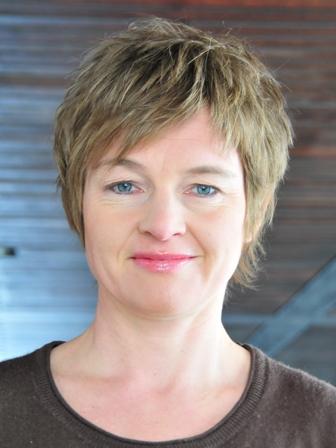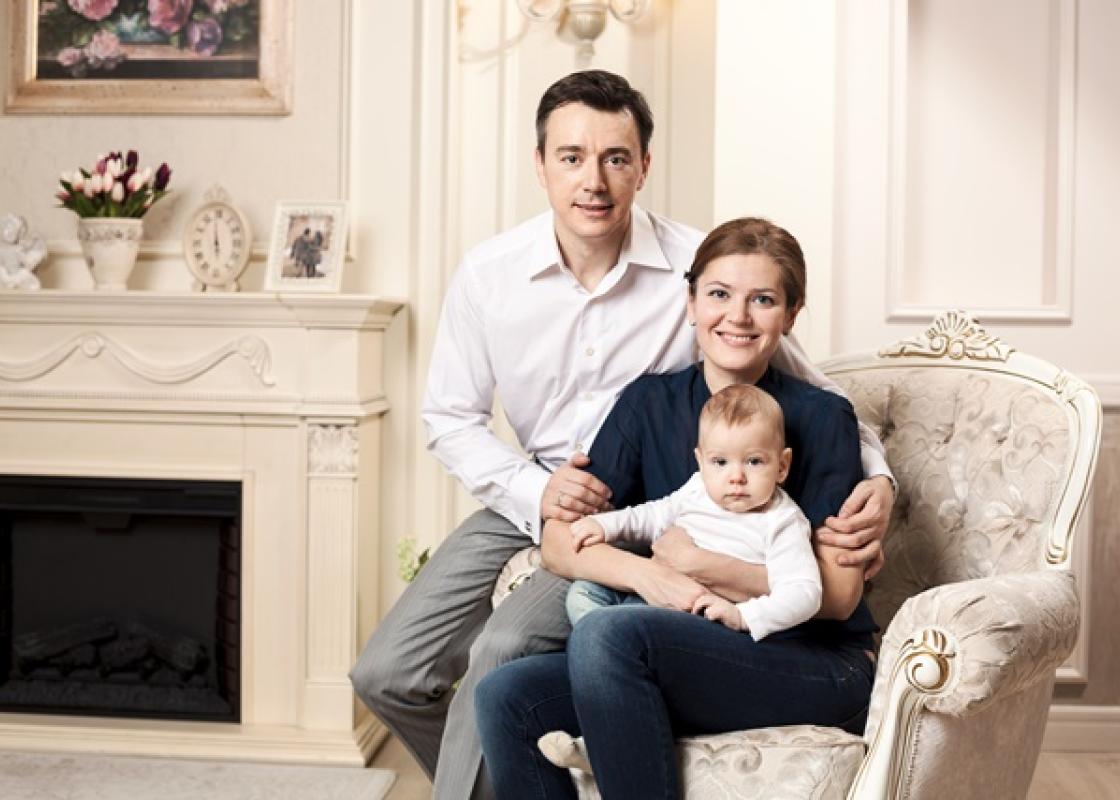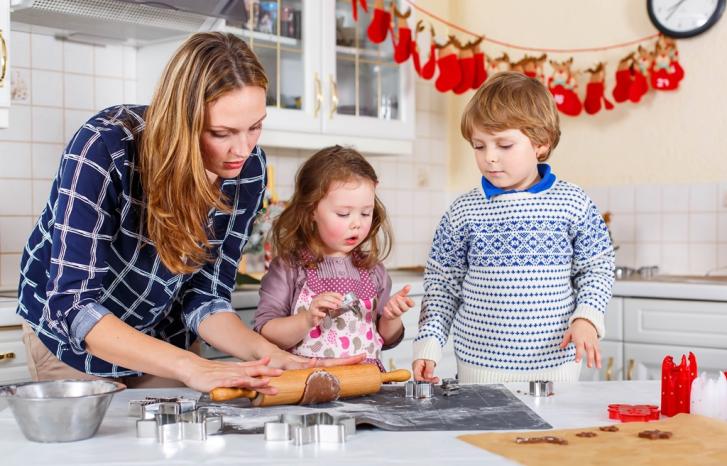“To these stay-at-home wives in the financial elite, the world is a tough place and their children need protection. They strictly distinguish between the cold financial marked where their husbands work, and their own human values,” says sociologist Helene Aarseth.
She has interviewed a group of women and men belonging to the wealthy Norwegian business elite; a group on which there has been done little previous research. The informants were asked to talk freely about their everyday life without being pushed towards any specific topics.
“This gave me an insight into how these people view their own world. I am not interested in disclosing distorted perceptions of reality or in judging other people morally. What I am looking at is the emotional background for why they have chosen to drop their career in order to concentrate on their children,” says Aarseth.
“These people live in close proximity to the heart of global capitalism. What is their driving force? This study may provide new insight into this group’s life project, but it may also shed light on other important dynamics in our society.”
From jurist to yoga teacher
To Aarseth’s informants it is highly important to create a safe haven at home for the children. Among the 13 families she has studied, nine of the women are either fulltime stay-at-home mothers or they have a small part-time job. This enables them to be at home every day when the children come back from school. In the present issue of Tidsskrift for kjønnsforskning (Journal of Gender Research), she is presenting her analysis of the families with stay-at-home mothers (Norwegian only).
Almost all the mothers had a prestigious education within law or economy, and they had high status positions before they had children. When the children arrived, they realised that other things were more important to them than their career:
Suddenly, when I had children, something awoke inside me, and I started thinking: “what is most important in life?” It was certainly not whether these ship-owners made money or not. I simply thought: “I couldn’t care less!” (Stay-at-home mother).
Several of the women have part-time jobs, which enables them to be at home when the children come home from school. They often have jobs where they “work with people”, such as life coach or yoga teacher. Others say that they chose the wrong education in the first place, and that they would prefer working as a nurse or in a kindergarten. They don’t see the point in doing this now, however, since their husband makes good money and their wages would only be a drop in the ocean anyway.
Proud of their choice
The women are proud of being stay-at-home mothers, and they emphasise that they are much happier after they dropped out of their career.
“Those with older children, however, wished there was a way back into the labour market, since their children don’t need as much attention anymore. They often go back to university to study History of Art or other subjects within the humanities,” says Aarseth.
Very few of the women mentioned the risk of divorce.
“The Norwegian idea of equality indicates that women have their own private income. In the event of divorce, we lack legal regulations that protect women who have chosen to take care of the home. Some of my informants may have financial security in family inheritance, but not all. Only two women would talk about their anxiety related to this issue. I take this to mean that the issue is too delicate to address,” says the researcher.
See also: Dad becomes leader, mum becomes mum
Creating safe childhood conditions
Aarseth’s informants emphasise that they want their children to be well prepared for the global competition they will be facing as grown-ups. According to these women, their children need security and protection in the childhood in order to handle the pressure as adults.
“This does not only involve everything that goes on within the home. The right neighbourhood is carefully selected often before the women have children. They choose areas that are known to have close neighbourhood relationships. The children run in and out of each other’s houses and according to the mothers, everybody gets to play,” says Aarseth.
Everybody’s equal in the neighbourhood, and to many of the parents it is important that the children don’t know how rich they are.
“They are signalling an emphasis on healthy and complete people of equal value. This is reflected in the neighbourhood, which is characterised by an exceptionally high standard of living which appears normal,” says the researcher.
Producing winners
The children do not participate in school-based extra-curricular facilities. Instead, mum spends her afternoon with the children and helps them with their homework.

“Particularly the mothers of children with challenges such as ADHD or hearing impairment do not spend their days in coffee bars. They spend all their energy on accommodating their child’s special needs and ensuring that these challenges do not limit their child’s possibilities. It’s an intense motherhood characterised by close attention and a lot of care and empathy,” says the sociologist.
At the same time, they clearly aim at producing the winners of tomorrow.
“The mother’s demands of her children are not necessarily extremely high, but if a child shows certain talents there are no reasons why it shouldn’t aspire to achieve top grades. The parents take it for granted that their children will be studying abroad and have an international career.”
Dad not included
The women are completely dedicated to their children. And they regard this as an important and demanding job. These women are not housewives who spend their time at home in order to clean and do housework. They have a cleaner and perhaps one or two au pairs to look after the home.
“Dinner is ready when the children come home from school, in time to reach training and matches. The dads have to look after themselves – perhaps they are granted a cold hot-dog by the kitchen counter,” says Aarseth.
Dad lives his own life at work on weekdays. The rest of the family can’t take his life into consideration when they organise their days. They never know when he arrives back from work, say the women.
Dependent on a stay-at-home wife?
Several of Aarseth’s male informants emphasised that they worked extremely long hours and it was therefore necessary for the family that their wife was at home.
“Not everybody have that long weekly working hours, though. Some of the men are investors and may come and go as they wish. Lawyers reported working weeks up to 60 hours. But I have previously interviewed couples who work in academia, who also work 60 hours’ weeks. They manage to have two demanding jobs and a home and family life, with children and without a cleaner or au pair,” says Aarseth.
According to her, it is not the work pressure within the financial elite but rather the emotional pressure that affects their choices when they become parents:
“While the middle class often think of their jobs as meaningful, the women and men in this study describe their working environment as hard and ruthless. The mothers choose to invest enormously in their family life in order to counterbalance this. In the end, this investment in the family goes hand in hand with the ruthless working life: Many of the children perform well at school and will eventually assume the same position in the class society as their parents.
See also: Mum takes more responsibility for the children, even in gender equal couples
No time for sick children
Both the men and the women in the study stressed the contrast between the ruthless work life and the warm home environment where there is an emphasis on human and family relations.
One of the couples in Aarseth’s study recently had a daughter with a serious heart condition. She needed potentially life threatening surgery when she was only two days old. But dad was not present at the hospital, since he had to go to Zürich in order to bring in a 20 million NOK contract. Fortunately, both their daughter and the contract came through.
“Although he wanted to be present at the hospital he felt that he had no choice. He had to put his emotions aside and concentrate on work. This is of course an extreme situation, but those who work in the financial services industry are facing similar situations all the time. This is why these couples find it necessary for the woman to stay at home in order to create a warm, cosy atmosphere for the husband to come home to, where he can be a complete human being,” says the researcher.
“But a lot of women want to stay at home when they have children, don’t they? Isn’t the only difference that these women can afford it?”
“That may be the case, and the presentation of a ruthless working reality also applies to Kari Stefansen’s research on working class families. They often want to wait longer than the middle class before they place their children in kindergarten. According to my studies, parents who work in academia are less concerned that their children won’t be able to cope with the world outside.”
“I think, however, that this is because they don’t experience the same ruthless reality outside the family as the elite couple in the present study. Perhaps this is why the Norwegian equality project particularly appeals to middle class academics,” says Aarseth.
“But it may also indicate a connection between the equality project and working life: Perhaps the hard competition and the lack of human relations in working life increase the longing for a sheltered oasis at home?”
The dream of a different life
In the weekends, dad is once more a part of the family. The goal is to leave work at 2 p.m. on Friday and come home to a packed car. The family then spends the weekends at their cabin in the mountains during the winter and by the sea during summer. The dads said that they don’t work at all in the weekends. They are constantly online, but they say that they quickly get all enquiries from work out of the way.
“The dads take on their traditional role as Sunday dads. They dedicate their time to play with the children and emphasise the freedom from responsibilities and concerns in the weekends.”
Many of Aarseth’s male informants dreamed about leaving work altogether as soon as their financial situation was secured. But to these men a secure economy involves something different than for people in general.
“They were very concerned about their economy. For instance, they might say that they needed to work extra for a period in order to afford to take the family on holidays to New York. This seems a bit strange when the family owns a number of properties,” says Aarseth.
According to her, this precariousness is connected to the ruthless pressure at work. They may make one mistake and lose everything, or the market may fail.
The men belonging to the Norwegian financial elite have similar dreams as their wives. They would also like to study History of Arts, to train childrens’ sports teams, write a book, or work with people. They just have to make enough money first.
Translated by Cathinka Dahl Hambro.
- Helene Aarseth is a sociologist and senior researcher at Norwegian Social Research, at Oslo and Akershus University College of Applied Sciences.
- Her post doctoral project Næringslivselitens familiekulturer i det moderne Norge (Family Cultures of the Business Elite in Modern Norway) was carried out at the at the University of Oslo. Aarseth was also an associated member of the project Nye familiekulturer (New Family Cultures) at the Institute for Social Research, which was funded by the Norwegian Research Council’s gender research program.
- One of her articles from the project is published in the present issue of Tidsskrift for kjønnsforskning (Journal of Gender Research), and she has also presented her research in her article 'Lyst til læring eller fit for fight?' (Desire to learn or fit for fight?) in the anthology Forskjeller i klassen (Differences in the Class Room) (ed. Harriet Bjerrum Nielsen).



